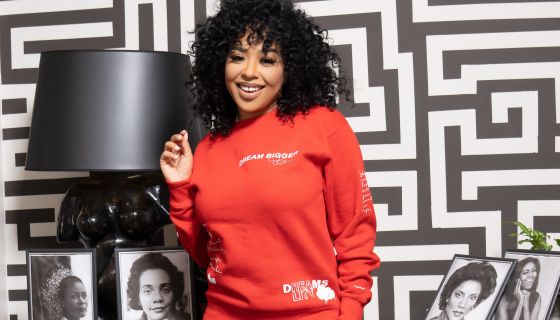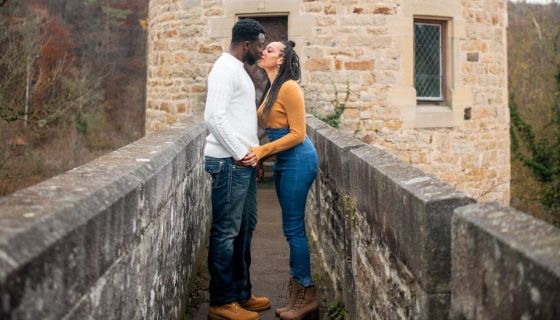Yezzi Yezzir, the host of the Hey Sis UK podcast, had a lot to say about the ridiculous beauty standards Black women are often subjected to on the Feb. 15 episode of the podcast.
While discussing the topic of natural hair and appearance with her co-host Atieno Yemoja, also known as A_Y, Yessir questioned why Black women are often pressured to keep themselves “well kept” and groomed compared to women from other ethnic groups.
“Have you noticed the standard for Black women to be well kept is higher for any other type of women?” the podcaster opined.
“It’s like to be deemed as a good-looking Black woman, Yeah? You have to be 10 out of 10, seven days a week, 24/7. We are not given the grace — not that we need to be given it — but we don’t have a relaxed, casual look where we’re still rated a 10 out of 10. You have to be looking red carpet-ready all the time. ”
Yessir theorized that the ridiculous standard was connected to America’s obsession with “awing” over Black women. The media personality argued that for Black women to be deemed beautiful, “worthy,” or “interesting,” they must have a unique quality about their physical appearance or features to be seen. She also noted how beautiful Black women are often subjected to uncomfortable microaggressions in public, for example, people touching their hair without consent, compared to women of other ethnic groups.
“Every time people are in awe of the Black woman, it’s seen as a spectacle. It’s seen as a circus. It’s seen as a petting zoo. Your definition of being in awe is not every other woman’s definition of being in awe,” she stressed.
“A lot of people are in awe of other types of women from afar. You can admire her beauty from afar, and you don’t feel the need to touch her up close — it’s an admiration of beauty. But when it’s the Black woman, if I’m in awe of you, I must stop you. I need to taste you. I need to damn near be you,” Yezzir told Atieno.
The podcaster added that individuals infatuated with Black beauty often try to copy or emulate our stunning features because they are inherently envious.
“You can’t be the only one,” she said of those individuals. “When I take a bit of what you have – your essence — you’re not special anymore.”
Black women react to Yezzir and Atieno’s debate on the Hey Sis UK podcast.
Yezzir’s spot-on argument struck a chord with Black women in the comments sections, who shared their negative experiences with unfair beauty standards.
“I just stopped caring,” one user wrote. “I do my hair myself, which isn’t professional. I hardly wear makeup, and I wear fashion that I like, which isn’t a trend. I’m overlooked most of the time, but why care? I have peace in being myself.”
Another netizen said she faced the “well-kept” discrepancy throughout her life because of her dark skin. Referring to her bullies as “They,” the user revealed that she was “masculinized” for wearing her natural hair.
“Afro = unkempt and straight hair = put together. You always have to smile and laugh, or you’re considered mean and uppity,” they added.
One user noted how it was unfortunate to see Black women criticizing other Black women on their appearance.
A user in the comments section summed up the dilemma perfectly:
“That’s because both sides have internalized self-hatred. Due to the indoctrination and assimilation into white-driven societies and their institutions. Most Black folks aren’t ready for this conversation. As it requires self-examination and acknowledgment of one’s wrongs.”
In a world where Eurocentric ideals predominantly shape beauty standards, Black women often find themselves grappling with the pressure to conform to these norms. The demand to adhere to Eurocentric beauty standards usually derives from fear and survival. As Yezzir and Atieno mentioned on the podcast, in professional settings, Black individuals frequently encounter subtle yet harmful remarks, actions, or attitudes about their hair, race, or general appearance. These microaggressions can range from disrespectful comments to biased treatment in hiring, promotion, or uncomfortable interactions with coworkers and management.
A survey co-commissioned by Dove and LinkedIn in 2023 found that Black women were 2.5 times more likely to be seen as unprofessional by wearing their natural hair in the office. Around 54% of participants said they needed to wear their hair straight to be considered professional or successful. Some women said they experienced uncomfortable microaggressions from coworkers or higher-ups when wearing their natural hair or textured hair in the workplace.
“More than 20% of Black women aged between 25-34 had been sent home from work because of their hair,” the study noted.
Additionally, the media plays a significant role in perpetuating these standards, often promoting images of beauty that are unattainable for many Black women. From magazine covers to advertisements, the glorification of Eurocentric features reinforces the idea that Blackness is something to be fixed or altered to be deemed beautiful or desirable. As a result, many Black women feel pressured to conform to these unrealistic standards, leading to harmful practices such as skin bleaching, chemical hair straightening and cosmetic surgery. These ridiculous beauty standards can have a devastating effect on our mental health, contributing to issues like low self-esteem, body dysmorphia and depression, Shape notes.
We’re happy Yezzir and Atieno are finally shining a light on this issue so we can get one step closer to breaking free from these ridiculous standards.
Watch the full episode of the Hey Sis UK podcast below. Thoughts?
RELATED CONTENT: Study Proves White-Dominant Workplaces Negatively Impact Black Women’s Careers












